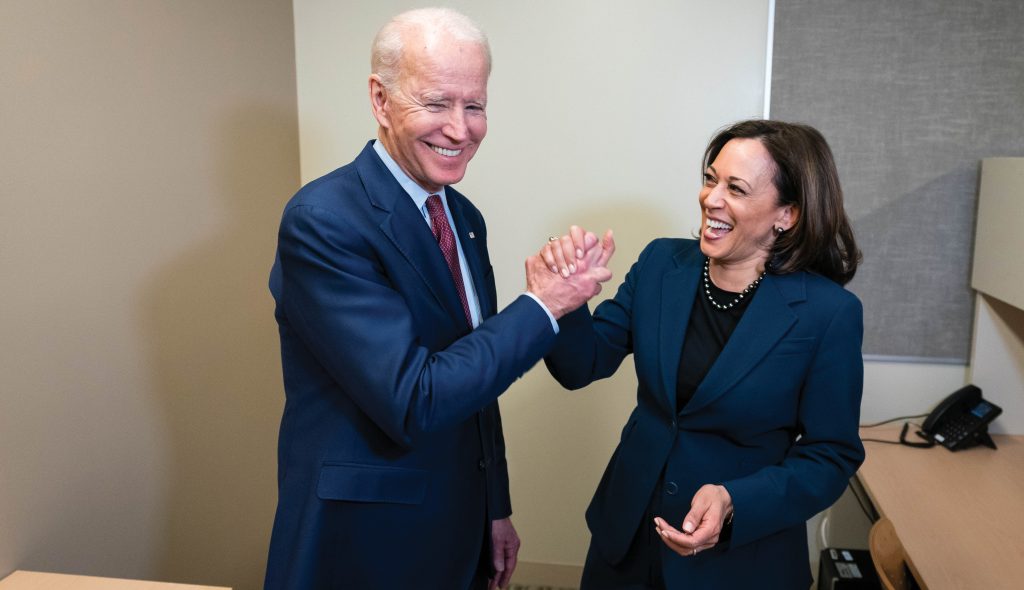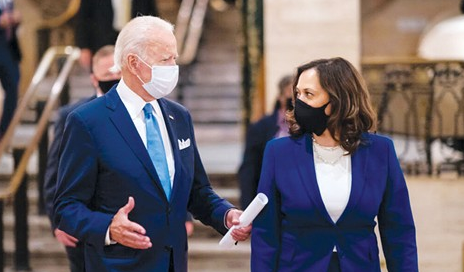Joe Biden’s New Role: Humanist-in-Chief
The first two decades of a century transformed by the Fourth Industrial Revolution have been characterized by the gradual siphoning of power away from the public good toward a narrow group of interests that would once have been described as special, but who might now be more practically thought of as harmoniously corrupt. The new American president can begin to change that, writes longtime Washington columnist and Policy Associate Editor Lisa Van Dusen.
Lisa Van Dusen
December 16, 2020
More than any incumbent since Franklin Delano Roosevelt took office in 1933 amid the Great Depression, Joe Biden will have an epic checklist of immediate, medium-term and long-term priorities and promises to get through as 46th president of the United States.
When Biden took office as Barack Obama’s vice president in 2009, the same was said about the global financial cataclysm that was both the urgent crisis management challenge and, potentially, the economic embolization that could choke their governing agenda. The Obama administration responded by combining economic recovery with progress on its policy priorities, including $90 billion in clean energy jobs and manufacturing.
So, Biden is no stranger to the hair-raising, white-knuckle transition briefing. But this time is different because the damage that he, Vice President Kamala Harris and their team face in the metaphorically ransacked Oval Office that Biden will be stepping back into will have been perpetrated and/or rationalized entirely by his predecessor. That list includes, first and foremost, a tragically avoidable death toll from a pandemic that should have been contained and whose contagion was amplified, accelerated and mocked by the president of the United States. It also includes the corruption and degradation of democracy that same president has undertaken, from his role as a one-man disinformation geyser to his threats against democratic norms, institutions and processes to his ongoing, at this writing, refusal to participate in the peaceful transfer of power that has distinguished every change in administration since John Adams succeeded George Washington in 1797. It also includes a pro-active campaign to deplete American influence worldwide, the emboldening of America’s geopolitical rivals and the negative outcomes that have been produced as a result of both. More practically, it includes the sabotage of American governance from the inside, partly catalogued in the Michael Lewis book The Fifth Risk, that has defined a parade of public incompetence and corruption and gutting of public service bodies from the State Department to the Environmental Protection Agency.
Meanwhile, the hourly distraction and diversion, the sheer unbelievable lunacy of the reality-show rampage of the past four years has served another purpose. It has obscured the most urgent reality-based policy challenges that any normal presidency would have been compelled not only to focus on but, in a healthy democracy, deal with publicly.
There is no shortage of such challenges, from climate change to economic inequality. But two decades into the transformative impact of the internet, the public policy challenge that has been most impactfully obscured by the chaos of the past four years is the future of work, which is simply a less melodramatic way of labeling the future of human beings.
In his International Monetary Fund Richard Goode Lecture on Dec. 4, 2020, MIT economist Daron Acemoglu, co-author with James A. Robinson of Why Nations Fail and The Narrow Corridor: States, Societies and the Fate of Liberty, outlined how technological change over the past two decades has combined with the decline in labour demand, the decline in wages and earnings and the internet-surged rise of artificial intelligence (AI) to produce the societal reckoning we’re now facing between the enormous profits of AI-enhanced automation and the value of human endeavour. “What we view as the right approach to AI is shaped by the same companies that are profiting from it,” Acemoglu noted of Big Tech’s influence on this evolution. “When you look at the vision of companies that…want to get rid of humans and make algorithms more capable, of course they are not going to spearhead technological change that puts humans back into the picture. We are putting all of our eggs in the automation basket because we have relinquished technological leadership as a society to a handful of companies led by a handful of people.”

The core question at the heart of this reckoning isn’t whether Artificial General Intelligence (AGI) will have the capacity to learn any intellectual task that human beings can perform—that has essentially been answered. It’s whether AGI will be able to replace humans across a broad range of production, and whether the prioritization of profit over people will allow that to happen. The implications of that question have not yet been the subject of serious public debate at national, international or multilateral levels, though they have been pondered for some time by Silicon Valley, intelligence agencies, academic specialists and the interests who stand to gain the most in power and profit from automation.
“If we just bumble into this unprepared, it will probably be the biggest mistake in human history,” MIT physicist Max Tegmark says of the public intelligence vacuum on AI. “It could enable brutal global dictatorship with unprecedented inequality, surveillance, suffering and maybe even human extinction.” That view is echoed by Tesla and SpaceX CEO Elon Musk, who, as the developer of an AI neuro-implant, knows something about AI’s disruptive potential, and who has described it as humanity’s “biggest existential threat.”
The obvious bulwark against a Hobbesian nightmare in which human beings literally become more trouble than they’re worth—with their costly health care needs and endless demands for food, water, freedom, agency and fun—is democracy. Lately, democracy has been as besieged as truth, normalcy, public integrity and human rights, most overtly by Donald Trump’s antics. But also by China’s leveraging of its economic heft to undermine democracy worldwide, and of technology to prototype surveillance state authoritarianism at home and elsewhere, including Hong Kong.
The COVID-19 pandemic has accelerated AI trends that would be unbridled by the absence of democracy by several orders of magnitude. “If you ask tech companies, they think this is a great period for further automation,” Acemoglu said. “Seventy-five percent of the companies in the United States say they are taking further steps now for further automation.” The World Economic Forum says that the next wave of automation in 2025—accelerated by the pandemic—will disrupt 85 million jobs globally. In September, the Federal Reserve Bank of Philadelphia produced the study Forced Automation by COVID-19? Early Trends from Current Population Survey Data, outlining the process by which time and lockdown attrition are already producing the permanent automation of human jobs.
On Dec. 4, the same day Acemoglu delivered his virtual IMF lecture, the Montreal inaugural plenary of the Global Partnership on Artificial Intelligence was wrapping up two days of meetings convened by Prime Minister Justin Trudeau and President Emmanuel Macron of France. The group, which also includes the United States, Australia, Germany, India, Italy, Japan, Mexico, New Zealand, the Republic of Korea, Singapore, Slovenia, the United Kingdom, and the European Union, represents the first, best example of a multilateral response to this challenge.
That may help the Biden administration begin to address at least one of three phenomena that have intertwined into one unsettling trend. The degradation of democracy, the economic marginalization of human capital and the avoidably amplified morbidity and mortality of the COVID-19 pandemic have produced the sort of devaluation of human beings and their interests that, history has shown, can be epically catastrophic.
The resistance to correcting what some interests see not as damage but as progress will be significant. But the arrival of a president whose profile includes the attribute of being authentically, empathetically human could bring exponential value to the process of reversing dehumanization. Joe Biden’s job may be to build back better, but his role may be much larger.
Lisa Van Dusen is Associate Editor of Policy Magazine. She was Washington bureau chief for Sun Media, international writer for Peter Jennings at ABC News, and an editor at AP in New York and UPI in Washington.

